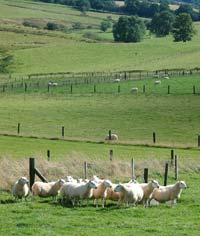Darling’s VAT change makes for landlord-tenant dilemma

Some tenant farmers could find their rents effectively frozen for three years after a controversial ruling by a High Court judge.
Farmers on Agricultural Holdings Act tenancies, and whose landlords charge VAT on their rent, could find the government’s decision to cut VAT to 15% from last December precludes either party from securing a rent review for three years.
After a High Court battle over a tenant’s unpaid rent, Mr Justice Lewison ruled last December that VAT was considered part of a tenant’s rent. Therefore, any changes to the VAT rate would constitute an alteration of that rent, triggering a little-known clause in Agricultural Holdings Act legislation.
This clause prevented landlords or tenants from seeking a rent review settlement through arbitration for three years, after rents had been altered, said solicitor William Neville of law firm Burges Salmon. “This could mean that landlords who served rent review notices seeking an increase in rent, which take effect from Lady Day or Michaelmas 2009, could be disappointed.”
The ruling did not prevent landlords and tenants coming to an amicable agreement between themselves, Mr Neville said, but did preclude any settlement through the formal arbitration process. It would also mean tenants were unable to use the same legislation to secure a rent reduction, he added. “And if the government increases the VAT rate to 18.5% in 2010, as the Treasury has hinted it might, that could mean rents become frozen for three years after that.”
Cases where rent review notices have been issued could be affectedif the review date was after 1 December 2008, not the date on which the notice had been served, he added.
Tenant Farmers’ Association chief executive George Dunn called the ruling “perverse”.
“This now means that any change in the VAT rate is sufficient to make rents static for at least three years.”
The TFA, along with its partner organisations in the Tenancy Reform Industry Group, was seeking an urgent amendment to the legislation, Mr Dunn said.
TRIG chairman Julian Sayers said an urgent meeting had been convened for 2 February. “We’ve got to find a way of resolving this as quickly as possible. It could adversely affect both landlords and tenants and DEFRA staff have been made aware of this.” Mr Sayers said he hoped the situation could be resolved more quickly by an amendment to the Finance Bill 2008.
Landlords often preferred not to waive the VAT exemption on Agricultural Holdings Act tenancies because it allowed them to reclaim VAT on some other costs. While it was difficult to estimate the number of tenancies that might be affected, Mr Sayers said the practice was common among bigger, institutional landlords.
It is understood the ruling won’t affect Farm Business Tenancies.
